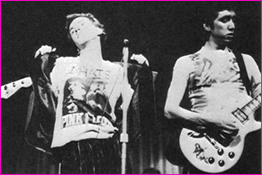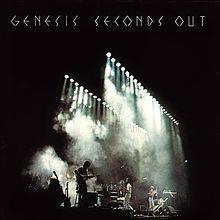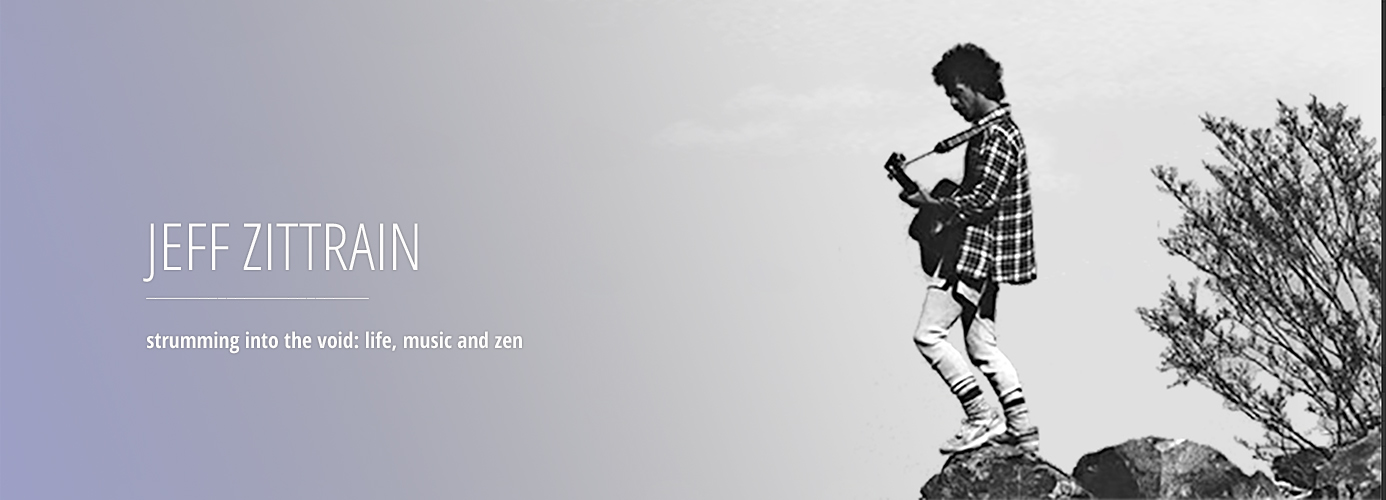Talk about the I Ching. A few weeks ago, on a particularly long drive, I listened to two cd’s in a row, randomly thrown together in my car stereo. They were “More Fun in the New World” by X and “Three Sides Live” by Genesis. I got out of my car a little wobbly. What totally different worlds, I thought – they might as well be living on different planets. What completely different visions and spaces to put me in.
I reflected on the jarring dichotomy, trying to find a connection between the two (they’re both in my player, after all) – As relates to this magazine, they’re both bands with serious musical chops…
Then I realized an odd irony – they’re both from the same year, 1982.
That’s even weirder – how could music be simultaneously heading in such opposite directions at the same time? It seemed symbolic suddenly, of an essential split in art that goes back centuries.
Genesis is music of the upper class – educated and trained both musically and academically, they sing songs referencing such subjects as Greek tragedy and mythology with much of their musical basis in the motifs of classical music. The songs are patient, epic-length, grand. It’s life lived with the luxury of exploration. (Granted, however, that “Three Sides Live” is a record of a band in transition, leaving their progressive epic aspirations for Phil Collins-dominated pop singles.)
X, on the other hand, is a band soaked in the bars, streets and grit of Los Angeles. Real death, violence, and angst permeate every aspect of their world, from the practical to the romantic. They don’t have time for (as Wordsworth famously described poetry) “emotion recollected in tranquillity.” “We’re desperate – get used to it!” they wail over pounding beats and 3-minute songs. “The world’s a mess, it’s in my kiss” they cry, unable to escape the harsh political realities of their environment. Even when they manage to relax, the tension and anxiety won’t leave them alone – building faster and faster as they desperately try to train themselves, repeating like a mantra “I must not think bad thoughts”.

In interviews, the members of Genesis may spend a lot of time defending their 80’s pop incarnation from charges of selling out, but it also seems to me they spend a lot of time wondering why they don’t get critical accolades for their earlier artsier material.
Their music is so intensely personal – and serious and epic and emotional. And when I see keyboardist Tony Banks defending it, I feel sad, almost like he doesn’t understand how the zeitgeist turned on him. And I also wonder: how did that happen, where does that music miss the mark of relevance?
X, and the punk scene from which they sprung, was a reaction to the overblown, epic, ostensibly self-indulgent music that rock had become in the 70’s. The Sex Pistols’ Johnny Rotten famously wore a t-shirt that read “I Hate Pink Floyd.”

Some of this makes sense. X guitarist Billy Zoom said he thought it was a joke to see guitar players grimace and pose as they played uninspired solos so he decided to play ripping leads and yet stand still and stare ahead with a frozen grin as if he was doing nothing at all.
However, consider also the scene in “Sid and Nancy” where a bunch of people are crashing on the floor together and Johnny Rotten rejects the advances of a girl, decrying sex as “boring hippie bullshit.”
This is where the X/Genesis split seems to me to reach profound proportions. Do we need to be defeated by the outside world? Where is the balance wherein we can acknowledge the role of politics and the (usually screwed up) outside world in our lives and yet not be so overwhelmed that we reject our own joys – so that we can still strive to celebrate and explore our humanity? Pink Floyd were epic, but they were certainly not like the shallow poseurs that Billy Zoom found laughable.
Genesis, like Pink Floyd, like Wordsworth, can be deep, I think -and yes, it’s partly because they can afford the luxury of existential and romantic angst and pleasures. But isn’t it tragic when that richness of experience is robbed from us, when we reject our own center because it seems ineffectual and under attack – when we lose our grandeur, unable to create our own space in the world ?
When I was in college and also working I used to come home from my job every day and turn off the lights and lie down and listen to Genesis’ “The Carpet Crawlers” – the lush keyboard arpeggios, sustained guitar, gorgeous melody and surreal lyrics painted a rich, multi-layered world so removed from the “real” world. It gave me respite from the outside and access to the majesty and depth of the inner world.

X, of course, is deep as well. The wonderfully -blended harmonies and life-affirming energy exploding and dancing and crying all at once in the face of despair and oppression. And along with politics, they sing about romance all the time – and in 2002 bassist John Doe released a beautiful, introspective and patient solo cd called “Dim Stars, Bright Sky.”
Once again, we return to balance, “chudan”, as I talked about in the last column. You must see your personal struggles in relation to the larger context. Sometimes they famously “don’t amount to a hill of beans in this crazy world.” Yet that’s where Humphrey Bogart’s Rick’s true nobility shines, in his understanding of the sad dynamic between his romantic relationship and the forces of the world. (Similarly, the love of Romeo and Juliet is profound partly because of the fucked-up society in which they find each other).

As always, it’s the jam that matters. Art tugs and pulls against itself, trying to find authenticity, meaning and transcendence. You only transcend if you understand what you are transcending. And likewise, you need to understand yourself to take true Right Action in the world. And perhaps this is the vision of The Carpet Crawlers’ enigmatic declaration in its beautiful repeating chorus: “We’ve got to get in to get out.”
